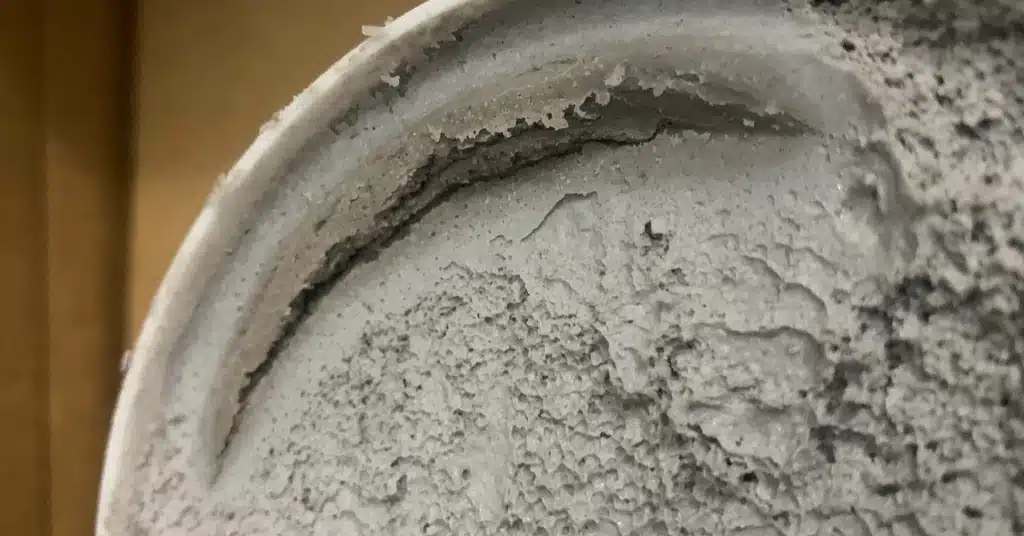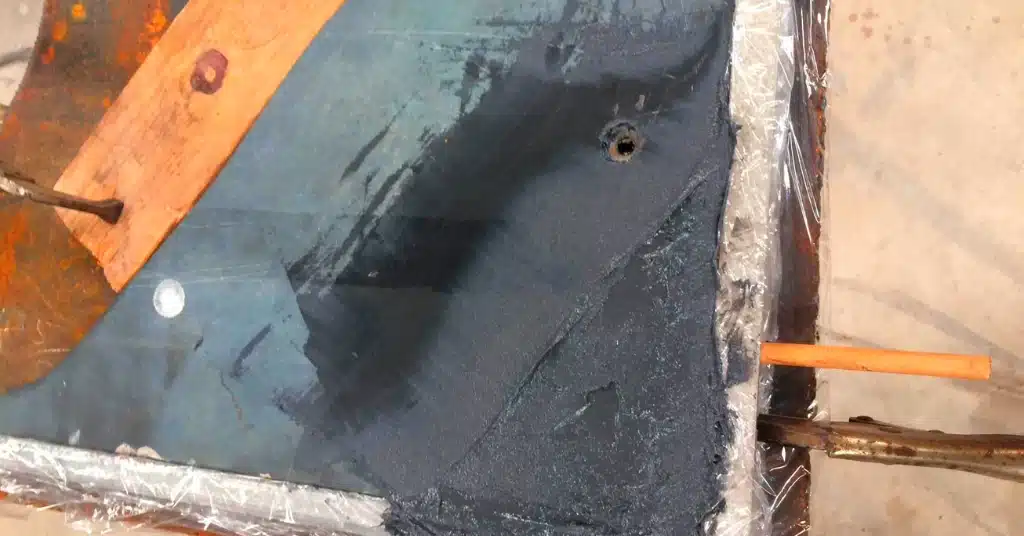Due to their durability, affordability, and versatility, ceramic tiles are an excellent choice for many home renovation projects.
Ceramic tiles can be difficult to install on concrete surfaces, especially if the correct adhesive is not selected. For the tiles to remain in place and maintain their appearance for many years, it is essential to use an adhesive that is strong and durable.
To help you in making an informed decision, I will discuss on the best adhesives for ceramic tile on concrete in this article.
Read More: Best Carpet Glue Remover from Concrete
Read More: Best Adhesive For Floor Tiles
Best Adhesive For Ceramic Tile On Concrete
There are three main types of adhesives available for the installation of ceramic tiles on concrete: thinset mortar, mastic, and epoxy. The strengths and weaknesses of each of these adhesives must be considered before selecting the one that is suitable for your particular application. Let’s talk about them in detail now.
Tile Thinset Mortar

Thinset mortar is an adhesive made from cement, sand, and water. Ceramic tile installations on concrete are commonly completed using this adhesive because it provides a strong bond and is moisture resistant. This versatile product can be used with a wide range of tile sizes and materials.
When thinset mortar is mixed with water, it becomes a sticky, spreadable paste that is applied to the concrete surface before the tiles are installed. It is ideal for use in areas that are exposed to high traffic and high humidity since thinset mortar dries to a hard and gives a durable finish.
Read More: Best Food-Safe Glue for Ceramics
Tile Mastic

Ceramic tiles can also be installed on concrete using mastic. It is a flexible, easy-to-work-with adhesive made from a mixture of organic materials, such as resins.
There are different formulations available to suit different types of tiles and surfaces, and it is often considered to be a good choice for smaller ceramic tiles. The mastic is applied directly to the back of the tiles, and then the tiles are installed on the concrete surface.
Due to its more flexible consistency and a lower likelihood of cracking over time, mastic is often considered to be easier to work with than thinset mortar.
Epoxy Adhesive

Ceramic tile installations on concrete are made easier with epoxy adhesives, as they are strong and durable. Additionally, they are resistant to moisture and chemicals, making them suitable for use in high-moisture areas such as bathrooms and kitchens.
An epoxy adhesive consists of two parts, a resin, and a hardener, which are mixed together prior to application. Once the mixture has been spread over the concrete surface, the tiles are installed on top of it. The use of epoxy adhesives is ideal for heavy-duty applications, such as in commercial kitchens or industrial settings, because they provide a strong, permanent bond.
Read More: What Adhesive Sticks to Ceramic Tile?
How To Choose The Best Adhesive For Ceramic Tile On Concrete?
It is important to select the right adhesive for your project based on its specific requirements and take into account some other factors. The following factors should be considered when selecting the best adhesive for ceramic tile on concrete:
Cost
The cost of the adhesive is also an important factor to consider. Epoxy adhesives and thinset mortars are usually more costly than mastic, but they provide a stronger bond and are more durable.
Type of Tile
The type of adhesive you need will depend on the type of tile you are installing. It may be necessary to use a stronger adhesive for heavy stone tiles, such as thinset mortar, while mastic may be sufficient for lighter and smaller ceramic tiles.
Tile Size
It is also important to consider the size of the tiles you are installing when choosing an adhesive. There may be a need for a stronger adhesive for larger tiles, while a more flexible adhesive may be more appropriate for smaller tiles. If you are choosing an adhesive, keep in mind the size of the tiles as well as the size of the joints between them.
Surface Condition
It is important to consider the condition of the concrete surface. It may be necessary to use a flexible adhesive, such as mastic, in order to compensate for an uneven surface. It might be better to use thinset mortar or epoxy adhesive if the concrete is in good shape.
Environmental Conditions
It is also important to consider the environment in which the tiles will be installed. If the tiles will be exposed to moisture or chemicals, an epoxy adhesive may be a better choice since it is resistant to both.
Personal Preference
It is also important to consider your personal preferences when selecting the best adhesive. The thinset mortar may be preferred by some tile installers because it provides a strong bond and dries hard, while mastic may be preferred by others due to its ease of use and flexibility.
Read More: Tile Adhesive vs. Thinset Mortar
Can You Put Ceramic Tile Directly On Concrete?
Which Is Better Tile Adhesive Or Cement?
Do I Need To Prime Concrete Before Tiling?
What Goes Under Tile On Concrete?
Last Opinion
By choosing the right adhesive, you can ensure a strong and long-lasting bond between ceramic tiles and concrete surfaces. Before making a final decision regarding thinset mortar, mastic, or epoxy, be sure to consider the type of tile, the size of the tiles, and the specific requirements of the surface. The right adhesive will ensure your ceramic tile installation looks great and performs well for many years to come.
It is advisable to consult with a professional tile installer or the manufacturer of the tiles and adhesive before making a final decision. Their expertise can help you choose the best adhesive for your particular project and ensure that your ceramic tiles will be securely bonded to the concrete. In this article, I also try to give you an overall idea about choosing the best adhesive for ceramic tile on concrete.

